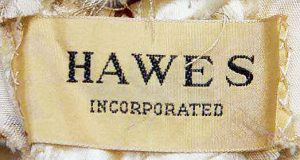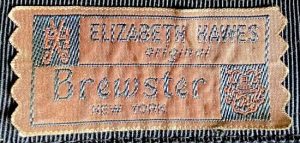Born in New Jersey in 1903, Elizabeth Hawes discovered her passion for sewing at 10. In 1923, she attended a course at Parson’s School of Fine and Applied Arts and realized she didn’t need art school to design clothes. She then apprenticed at Bergdorf Goodman to learn the secrets of expensive made-to-order garments.
After graduation, she went to Paris and reported on fashion. She secured a position at a dressmaker’s shop that created good-quality but illicit copies of haute couture dresses.
In 1926, Hawes became a sketcher for a clothing manufacturer but eventually shifted to become a fashion correspondent. She later worked as a buyer for Macy’s and Lord and Taylor. In 1928, she worked for Paul Poiret’s sister Nicole Groult and then returned to New York to open the Hawes-Harden shop with a friend. It gradually attracted a clientele that appreciated the “original without being eccentric” designs. In 1930, Harden sold her share to Hawes.
In 1931, she presented her collection in Paris, becoming the first non-French design house to do so during the Paris season. Hawes advocated for women wearing trousers and published critiques of the fashion industry.
She presciently believed that the future of fashion was in ready-to-wear garments and specialized retailers. During World War II, Hawes fought for women’s rights and organized labor unions. In 1948, she relaunched her business but it failed due to her political involvement being exposed. She worked for Priscilla of Boston and continued designing for herself and friends. Hawes died in 1971.
Written by Ian Drummond

